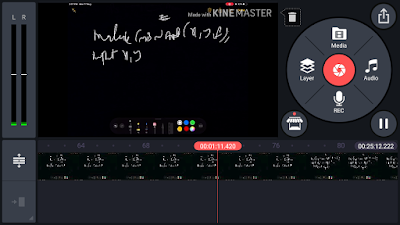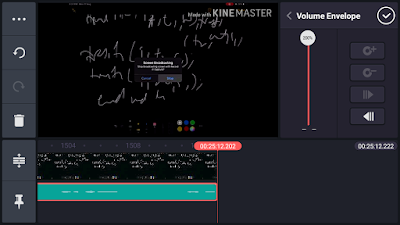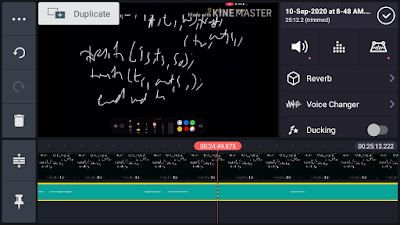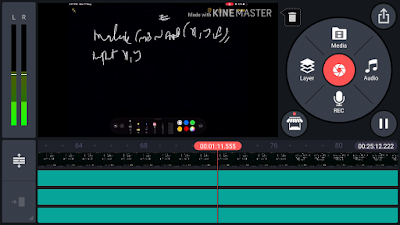Kinemaster is one of the applications used for video editing.
People who had little experience with the app, know about sound amplifying that can be done using two possible ways, using volume envelope, and normal volume adjusts button.
But, you can further amplify the sound, by simply "cascading"!!, yeah, you just need to extract the audio file, and just duplicate it enough times, so that the desired audio level is reached.
Here is my example for you:
1. The initial file, the audio level can be seen clearly, which is much below the average level:



After duplicating for four times, finally, this is my audio level, as shown below:

Highly appreciated, if you got any methods to remove the background noise...
Thanks for the reading, and your feedback is always welcomed, as it helps us to make this blog a better place...
You can also share any similar hacks regarding the Kinemaster, or any application so that we can also learn from you, and can get closer to, 'The Eternal Thing'...

Comments
Post a Comment